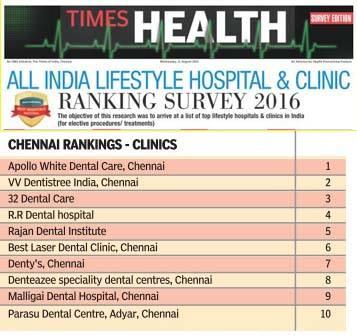About Malligai Dental
We Rank the 9th place among the top 10 Dental clinics in chennai city.

Our Uniqueness
18 years of experience
2 World Class Clinics
10000 Satisfied Customers
10 Practicing Specialities
18 Years of Dental Excellence
With a passion for dentistry, Major Dr Pravin Prathip J has started Malligai Dental Hospital in Chennai in 2009 now spanning two dental centres one in West mambalam and one in ashoknagar area and Focused vision of providing outstanding services in dentistry,
Since its birth in Chennai in 2009 , Malligai Dental Clinic has built an enviable place in the industry as one of the most trusted dental healthcare providers in the region.
True to its reputation, Malligai Dental hospital has grown thirty times over the last years with a highly committed team of experts serving more than 10,000 patients to date. We have assembled the finest team of dentists, specialists, dental hygienists and support staff representing General dentistry, Cosmetic dentistry (Aesthetic dentistry), Oral Surgery and Implantology, Orthodontics (braces), Pedodontics (Pediatric dentistry) and Prosthodontics
Ever since we started we have gained the trust of generations of patients who are happy to come back and bring along with them their friends and family.
Malligai Dental is housed in two thousand square feet in centrally located West Mambalam and Ashoknagar with five well appointed dental operatories in a sparklingly clean, pleasant and hygienic environment. A team of dedicated specialists and general dentists welcome patients to the ideal blend of western technology and eastern skills.
We are honoured and happy to serve our patients with the latest that modern dentistry has to offer. It is our way of saying Thank You to our growing band of happy satisfied patients that dot the globe and come from distant lands to seek our services. Malligai Dental has grown from strength to strength, constantly adding equipment, incorporating technology and re-inventing itself. Malligai Dental is proud of its legacy and strives for professional satisfaction that is linked so closely with the smiles on the faces of the people we look after.
.